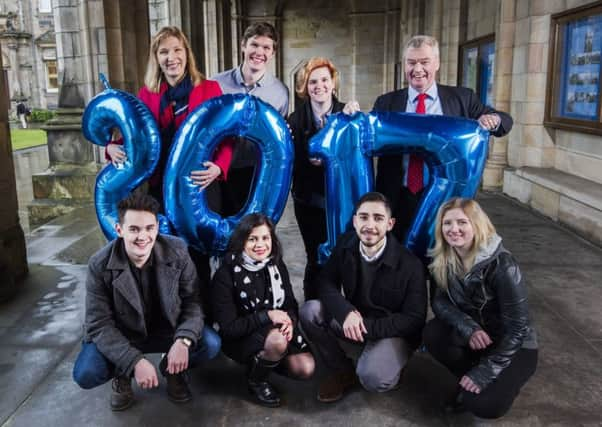Entrepreneurial contest seems money well spent
This article contains affiliate links. We may earn a small commission on items purchased through this article, but that does not affect our editorial judgement.


It looks at the impact of the Converge Challenge, an entrepreneurial development programme and company creation competition for staff, students and recent graduates from Scotland’s universities and research institutes.
Founded six years ago, the initiative aims to bring together the most ambitious and creative minds from academia, research and business and to act as a pathway for university entrepreneurs to ensure that the innovators of the future receive the right support to develop profitable businesses for Scotland.
Advertisement
Hide AdAdvertisement
Hide AdSince its inception, Converge Challenge has awarded prizes with a total value of £663,000, with 56 per cent awarded in cash, and 44 per cent awarded in in-kind support.
But according to today’s report by BiGGAR Economics, the wider impact has been much more significant. It estimates that the start-ups and university spinouts who have taken part have so far leveraged over seven times the funding that the programme’s university partners and the Scottish Funding Council (SFC) originally invested in the competition.
John Kemp, chief executive of the SFC, said: “Converge Challenge throws the spotlight onto some of the amazing entrepreneurial talent emerging from Scotland’s universities and research institutes.
“This report shows just how well this emerging talent is doing in securing investment, marketing successful products and creating great jobs for the Scottish economy.”
BiGGAR Economics found that £29.7 million of follow-on funding was secured by businesses based in Scotland of which £12.5m can be directly attributed to the support provided through Converge Challenge. This means that every £1 funding invested by the SFC and universities in the Converge Challenge to date has enabled Scottish businesses to leverage a further £7.51 in funding.
From 2011-2016, the main Converge Challenge award category, for those with the most developed ideas, has provided training to 180 individuals, 69 of whom subsequently formally incorporated their businesses. This represents an incorporation rate of 38 per cent.
Advertisement
Hide AdAdvertisement
Hide AdOf these 69 businesses, 60 remained active in 2016, representing an overall survival rate of 87 per cent.
The businesses that have taken part in Converge Challenge supported 180 jobs based in Scotland in 2016 and out of those 100 jobs can be directly attributed to Converge Challenge.
In terms of gross value added (GVA) economic output, businesses supported by the initiative generated £5.2m for the Scottish economy in 2016. Of this it was estimated that £3.4m can be directly attributed to the support provided by the Converge Challenge.
The report estimates that in the long-term Converge Challenge could be responsible for generating £21.8m GVA per year for the Scottish economy which would mean each £1 invested by the SFC and universities in the project could generate over £13 per year for the Scottish economy.
Dr Olga Kozlova, founder and director of Converge Challenge, said the report provides hard numbers to show the impact it was having.
“We felt it was important to show the funders what was being achieved but also to see if there were things we could be doing better.
“Converge is only as good as our alumni companies and it is fantastic to see the growth in funding, investment, jobs and, most importantly, the ambition and confidence of our programme participants.”
Converge Challenge alumni highlighted as case studies include David Hunter, a former electronics design engineer who first participated in Converge Challenge in 2013.
Advertisement
Hide AdAdvertisement
Hide AdHe subsequently reached the final six in 2014 with Shot Scope, a performance tracking wristband for golfers that automatically collects scores, shot statistics and analytics. After his Converge Challenge training and support, he secured total funding of £2.6m over two years.
“The support from Converge Challenge comes at a time when you’re uncertain about the future and what route to take,” said Hunter.
“You’re on your own trying to do everything but Converge points you in the right direction, gives you the right skills and allows you to believe that you can set up and run your own business. It gives you the confidence and belief to say ‘I can do this’.”
With the deadline for the next Converge Challenge approaching next month, Kozlova is eagerly looking forward to reviewing the entries.
“Being able to see what ideas some of the brightest people in the country have come up each year is a fantastic experience.”